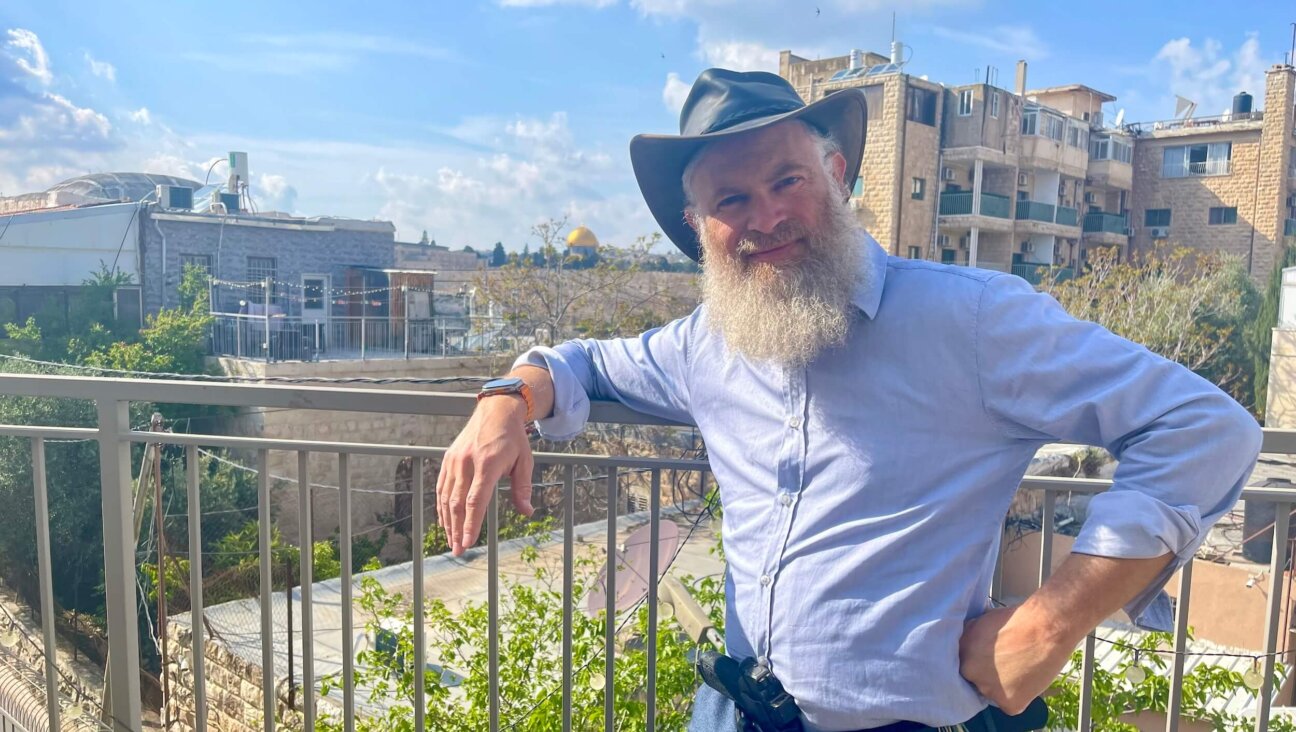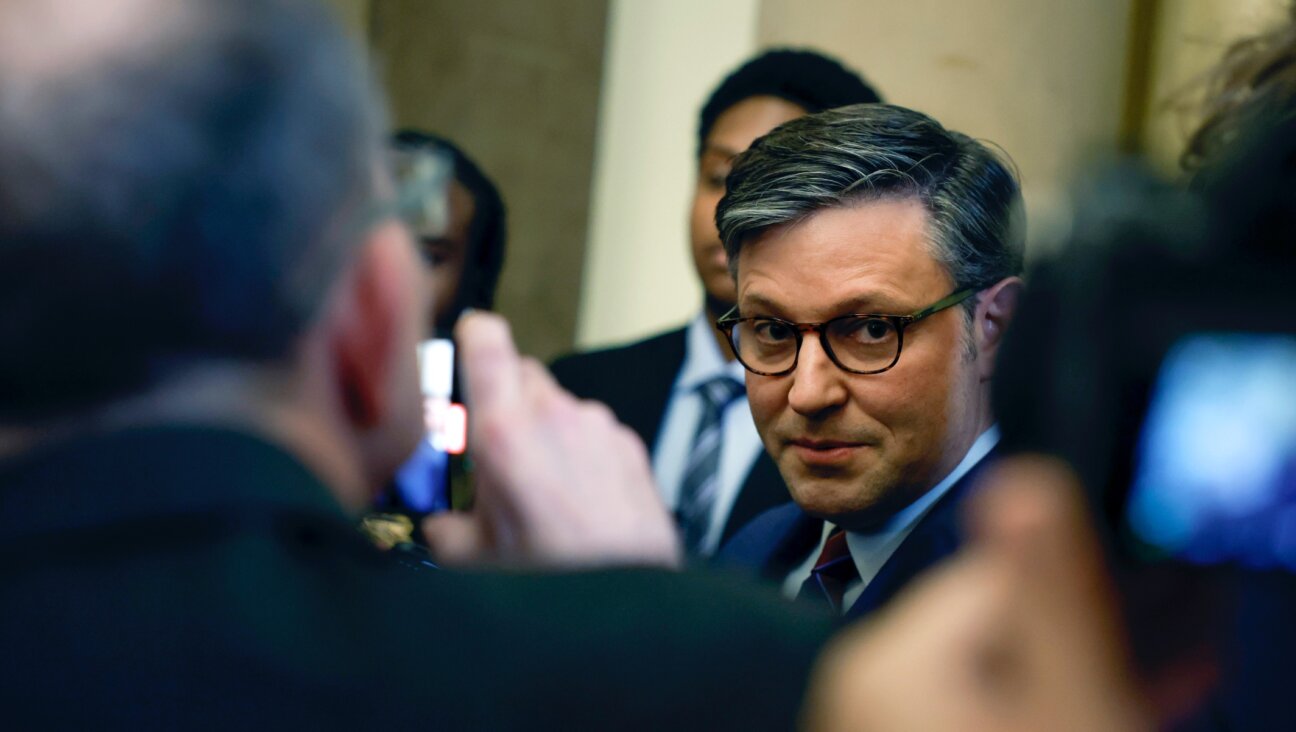W. Gunter Plaut, Noted Reform Scholar

Image by wikimedia
Those Reform Jews fortunate enough to have met Rabbi W. Gunther Plaut even once never forgot him. He was a tall, imposing, self-confident figure who spoke impeccable, precise, German-accented English that commanded attention in every setting — in classes, at conferences and in public debates.
On February 9, the Reform movement and, more broadly, American Jewry lost Plaut, one of Judaism’s greatest scholars, most eloquent voices and most vigorous champions. Plaut died at age 99, following a decade-long battle with Alzheimer’s disease.
Even those who never met him knew his name and learned at his feet. In Torah discussions this week, and every week, and in Reform congregations throughout the world, teachers and students will make frequent references to “what Plaut says,” referring to the book that is popularly known as “the Plaut commentary.” This book, “The Torah: A Modern Commentary,” was edited by Plaut, who was also its primary author.
“The Plaut commentary” is the first scholarly, comprehensive, liberal Jewish commentary on the Torah in English, and it changed the Reform movement in dramatic ways. Published in 1981 by what is now the Union for Reform Judaism, it laid the foundation for the return to Torah study and to tradition that has become a central theme of Reform Judaism.
The democratic principle that Torah belongs to us all, and that every Jew has an obligation to study the text himself or herself, required producing a modern commentary that would make Torah accessible to the general membership. The apologetic, outdated commentaries then in existence would have to be replaced by something both authentically Jewish and suited to modern sensibilities.
Rabbi Alexander M. Schindler, then President of the Union, rejected the advice of those who urged him to have a university professor produce the volume. He turned instead to Plaut. The rabbi brought to the task an impressive command of traditional sources, a broad knowledge of critical scholarship, a comprehensive familiarity with contemporary culture and the ethical passion characteristic of Reform theology. In addition, as a respected and successful congregational rabbi, he knew what synagogue Jews cared about and how to engage those Jews in Torah. The result was a commentary that was an instant synagogue “best-seller”; serious, user-friendly, and reflecting Plaut’s deep reverence for the text. Within a few years of publication, it was acquired by virtually every Reform congregation in North America and by more than a few Conservative and Reconstructionist ones.
Much of this massive work was produced by Plaut while he still served as senior rabbi of Toronto’s Holy Blossom Temple. Every morning, from 9 a.m. until noon, he would devote himself to his scholarly endeavors and then spend the remainder of the day on congregational and community matters. Indeed, while his Torah commentary was a monumental achievement, his accomplishments in other realms as an activist and religious leader made him a revered figure in the Jewish world.
Upon arriving in Canada, after serving congregations in Chicago and in St. Paul, Minn. Plaut quickly established himself as one of the country’s pre-eminent Jewish leaders. A man of broad interests who was committed in particular to the cause of Soviet Jewry, he immediately created ties to secular Jews, to Jewish communal bodies and to religious Jews of all denominations. He was ultimately seen by many in these groups as the unofficial leader of Canadian Jewry, and he was the first rabbi to become president of the Canadian Jewish Congress.
Plaut was a man of great courage in many realms. In the Reform movement, his was a generally traditional orientation. Proudly Reform and liberal in a classical sense, he nonetheless advocated for those elements of tradition that he saw as central, even when it was unpopular to do so. He spoke out against rabbinic officiation at interfaith marriages when many in the Reform movement were adopting a more flexible view; he called for more emphasis on Saturday morning worship at a time when Friday evening, Erev Shabbat, worship was central in Reform synagogues, and he urged greater Sabbath observance at time when the subject was hardly discussed.
Subjected to more than a little criticism for his views, Plaut was undeterred. He was a man of principle and great personal resolve — and was also, by the way, intense and competitive. He played tennis well into his 80s, regularly beating those many decades his junior and showing no mercy in the process.
Born in Germany, Plaut fled the Nazis with his wife, Elizabeth. After ordination at the Hebrew Union College-Jewish Institute of Religion, in Cincinnati, he joined the U.S. Army in 1943. He served as a frontline chaplain in Belgium and Germany and took part in the liberation of Germany’s Dora-Nordhausen concentration camp. With the consent of his commander, he demanded from the mayor of Nordhausen — at the point of a gun, according to some reports — that the men of the city bury the countless dead lying about the camp.
Gunther Plaut taught Torah to the Jewish people and was the teacher to a grateful Reform movement — a movement that is now bereft and mourns his passing with profound sorrow. May his memory be for a blessing.
Eric Yoffie is the outgoing president of the Union for Reform Judaism.

I hope you appreciated this article. Before you go, I’d like to ask you to please support the Forward’s award-winning journalism this Passover.
In this age of misinformation, our work is needed like never before. We report on the news that matters most to American Jews, driven by truth, not ideology.
At a time when newsrooms are closing or cutting back, the Forward has removed its paywall. That means for the first time in our 126-year history, Forward journalism is free to everyone, everywhere. With an ongoing war, rising antisemitism, and a flood of disinformation that may affect the upcoming election, we believe that free and open access to Jewish journalism is imperative.
Readers like you make it all possible. Right now, we’re in the middle of our Passover Pledge Drive and we need 500 people to step up and make a gift to sustain our trustworthy, independent journalism.
Make a gift of any size and become a Forward member today. You’ll support our mission to tell the American Jewish story fully and fairly.
— Rachel Fishman Feddersen, Publisher and CEO
Join our mission to tell the Jewish story fully and fairly.
Our Goal: 500 gifts during our Passover Pledge Drive!
























